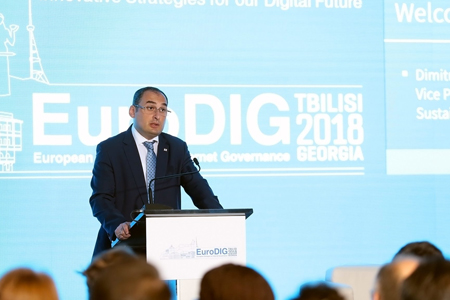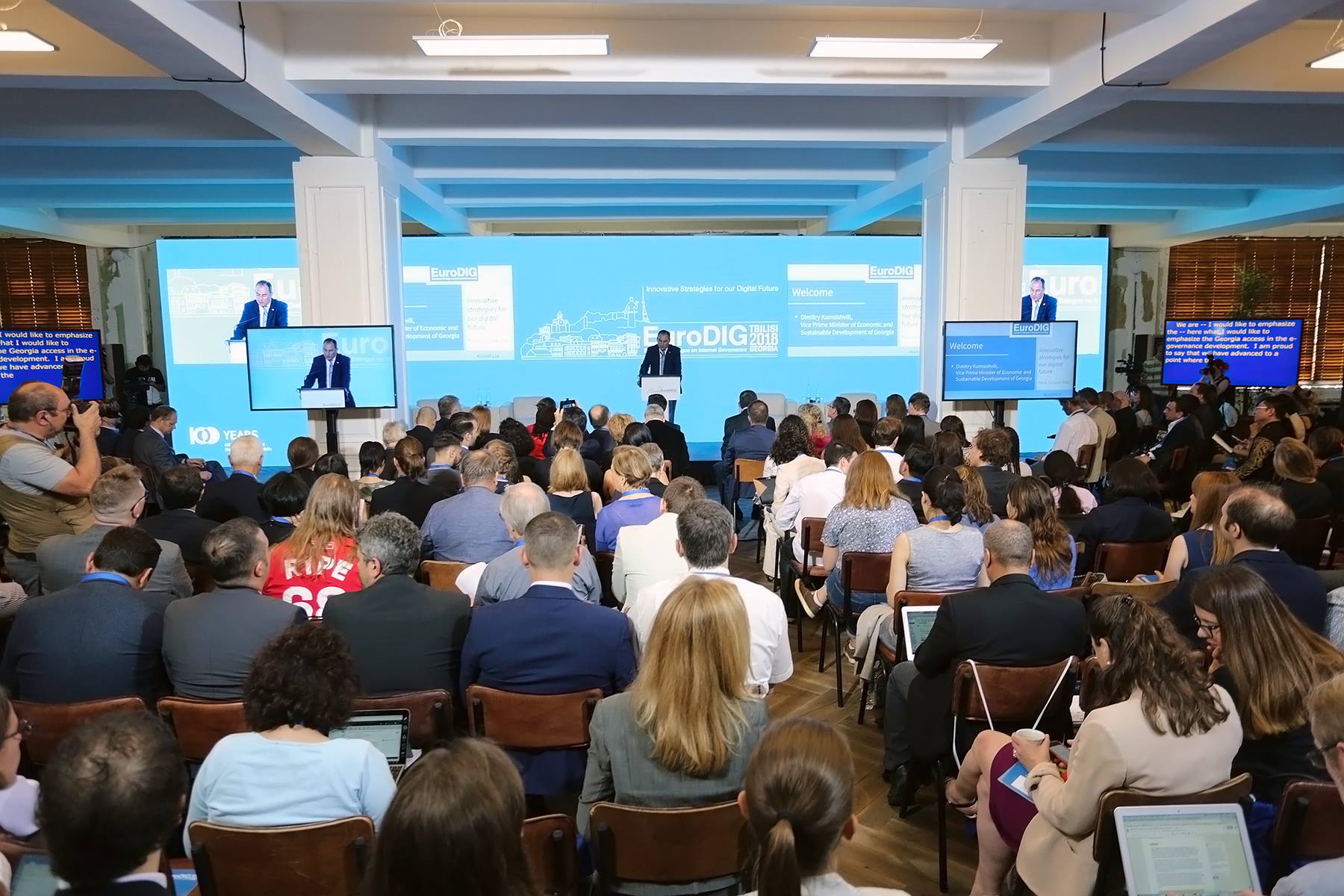Over 500 guests attend European Dialogue on Internet Governance in Tbilisi

Georgia’s capital of Tbilisi is hosting the European Dialogue on Internet Governance (EuroDIG) 2018 on June 4-6.
Over 500 guests representing European countries and European structures are now in Tbilisi to discuss all the issues related to internet management and the development of digital economy including human rights protection on the internet, freedom of expression, copyright protection, data protection regulations (GDPR), cyber security, access to the internet and the content, development of the telecommunication infrastructure, accessibility of the internet in the communities, domains, protection of children’s rights, digital economy, e-commerce, block chain, digital literacy, innovations.
Following several successfully conducted forums on internet governance (GeoIGF) in Georgia that received positive international feedback, the organisational committee of the EuroDIG decided to hold the 11th EuroDIG 2018 in Georgia.
This is the first time that the forum is held in the Eastern Partnership country and the second occasion when it is taking place in a non-EU country.

Economy Minister Dimitry Kumsishvili talked about the prospects for development of the telecommunication sphere in Georgia. Photo: Georgia's Ministry of Economy.
Georgia’s Economy Minister Dimitry Kumsishvili officially opened the forum today. In his speech he talked about the prospects for development of the telecommunication sphere in Georgia and the steps being taken in this direction.
The government of Georgia strongly cares about the development of the telecommunication sphere by using innovative techniques and technologies. In recent years we have made important steps to speed up the development of information and communication technologies (ICT)”, Kumsishvili said.
Also Kumsishvili mentioned the large-scale reform of digital broadcasting, which was implemented in 2015. As a result of the reform Georgia switched from analogue to digital broadcasting and today 21 channels are available free at the national level, while before the reform only four channels were available.
Kumsishvili also said that 99.7 percent of Georgian population uses 4G/LTE mobile service, 99.9 percent - 3G/LTE and 70 percent of families in Georgia have fixed internet service.
"Because of the legislative changes on technological neutrality, Georgian mobile operators were able to provide mobile LTE 4G broadband services”, Kumsishvili said.
 Tweet
Tweet  Share
Share